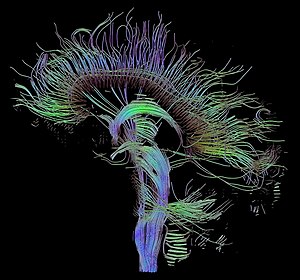[A] visual study guide to cognitive biases (defined as "psychological tendencies that cause the human brain to draw incorrect conclusions). It includes descriptions of 19 social biases, 8 memory biases, 42 decision-making biases, and 36 probability / belief biases.http://www.boingboing.net/2010/05/19/a-visual-study-guide.html
http://www.kk.org/quantifiedself/2010/05/a-visual-guide-to-cognitive-bi.php
Very nice to categorize all these cognitive failure modes, but just knowing about these biases does nothing to prevent one from indulging in them.
For example, Ian Plimer called out those who denied evolution, but now practices the most shabby form of global warming denialism, using exactly the same shabby techniques of the creationists he previously battled.
http://watchingthedeniers.wordpress.com/2010/04/21/ian-plimer-caught-out-again-co2-is-magic-argument-continues-to-lie-about-volcanoes/
There is the very nice (and surprisingly thin and readable) _The Psychology of Judgment and Decision Making_ by Scott Plous. Very nice feature of the book is that after identifying each bias, Plous gives the research on effective techniques to avoid committing those biases in your own thinking.
http://www.amazon.com/Psychology-Judgment-Decision-Making/dp/0070504776
[Edit 06/01/10]
More here:
Steve Easterbrook - Serendipity: Another cognitive bug: Attempting to correct a misperception often reinforces it
I’m fascinated by the cognitive biases that affect people’s perceptions of climate change. I’ve previously written about the Dunning-Kruger effect (the least competent people tend to vastly over-rate their competence), and Kahan and Braman’s studies on social epistemology (people tend to ignore empirical evidence if its conclusions contradict their existing worldview).
...
[F]actual corrections in newspaper articles don’t appear to work for those who are ideologically motivated to hold the misperception, and in two out of the four studies, it actually strengthened the misperception. So, fact-checking on its own is not enough to overcome ideologically-driven beliefs.


![Reblog this post [with Zemanta]](http://img.zemanta.com/reblog_e.png?x-id=a45e0867-56e0-449d-b738-2bb1af995799)
No comments:
Post a Comment